- Iran
- Israel-Hamas
-
Topics
FeaturedIntroduction Over the last several decades, governments have collectively pledged to slow global warming. But despite intensified diplomacy, the world is already facing the consequences of climate…
-
Regions
FeaturedIntroduction Throughout its decades of independence, Myanmar has struggled with military rule, civil war, poor governance, and widespread poverty. A military coup in February 2021 dashed hopes for…
Backgrounder by Lindsay Maizland January 31, 2022
-
Explainers
FeaturedDuring the 2020 presidential campaign, Joe Biden promised that his administration would make a “historic effort” to reduce long-running racial inequities in health. Tobacco use—the leading cause of p…
Interactive by Olivia Angelino, Thomas J. Bollyky, Elle Ruggiero and Isabella Turilli February 1, 2023 Global Health Program
-
Research & Analysis
Featured
Terrorism and Counterterrorism
Violence around U.S. elections in 2024 could not only destabilize American democracy but also embolden autocrats across the world. Jacob Ware recommends that political leaders take steps to shore up civic trust and remove the opportunity for violence ahead of the 2024 election season.Contingency Planning Memorandum by Jacob Ware April 17, 2024 Center for Preventive Action
-
Communities
Featured
Webinar with Carolyn Kissane and Irina A. Faskianos April 12, 2023 Academic and Higher Education Webinars
-
Events
FeaturedJohn Kerry discusses his work as U.S. special presidential envoy for climate, the challenges the United States faces, and the Biden administration’s priorities as it continues to address climate chan…
Virtual Event with John F. Kerry and Michael Froman March 1, 2024
- Related Sites
- More
December 6, 2023
South Korea“[T]he U.S.-South Korea alliance faces significant risks and dangers in the event that both countries were to elect nationalist America-First and Korea-first leaders,” Scott A. Snyder contends in his…
December 12, 2023
South KoreaScott A. Snyder, a senior fellow for Korea studies and director of the program on U.S.-Korea policy at CFR, sits down with James M. Lindsay to discuss the importance of the U.S.-South Korea military …
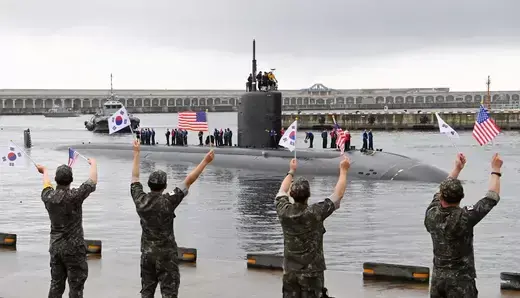
December 7, 2023
South KoreaThe alliance between the United States and South Korea has endured through seven decades of shifting regional and geopolitical security contexts. In The United States–South Korea Alliance: Why It May…
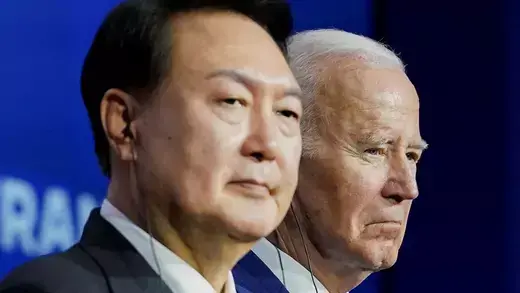
May 2, 2023
South KoreaScott Snyder, a senior fellow for Korea studies and the director of the program on U.S.-Korea policy at the Council, sits down with James M. Lindsay to discuss South Korean President Yoon Suk-yeol’s …
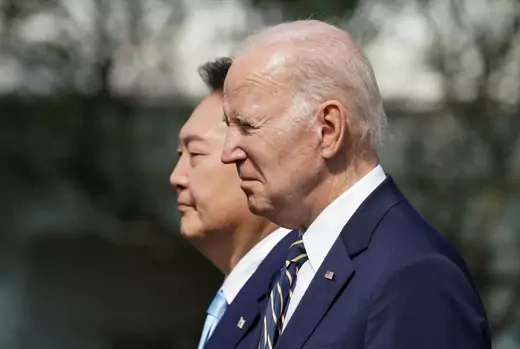
March 20, 2024
South KoreaToday is my last day at CFR, which marks the conclusion of over fifteen years of contributions to Asia Unbound. My publications and contributions to CFR remain in archives on the website.
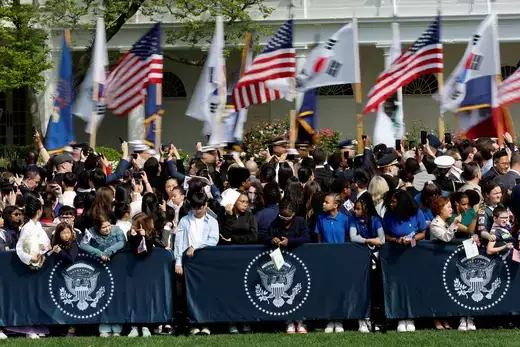
February 14, 2024
South KoreaSummary The U.S.-South Korea alliance has been the cornerstone of bilateral cooperation and the U.S. security presence in the Indo-Pacific region for over seven decades and continues to serve as a…
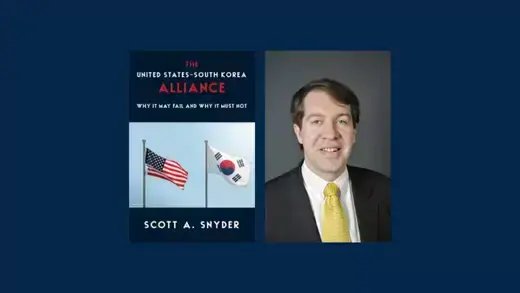
March 22, 2022
North KoreaScott A. Snyder, senior fellow for Korea studies and director of the program on U.S.-Korea policy at CFR, sits down with James M. Lindsay to discuss the global implications of North Korea’s recent mi…
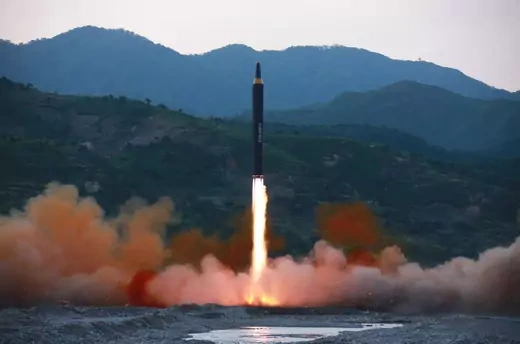
December 5, 2023
South KoreaThe alliance between the United States and South Korea has endured through seven decades of shifting regional and geopolitical security contexts. Yet it now faces challenges from within. Domestic pol…

 Online Store
Online Store